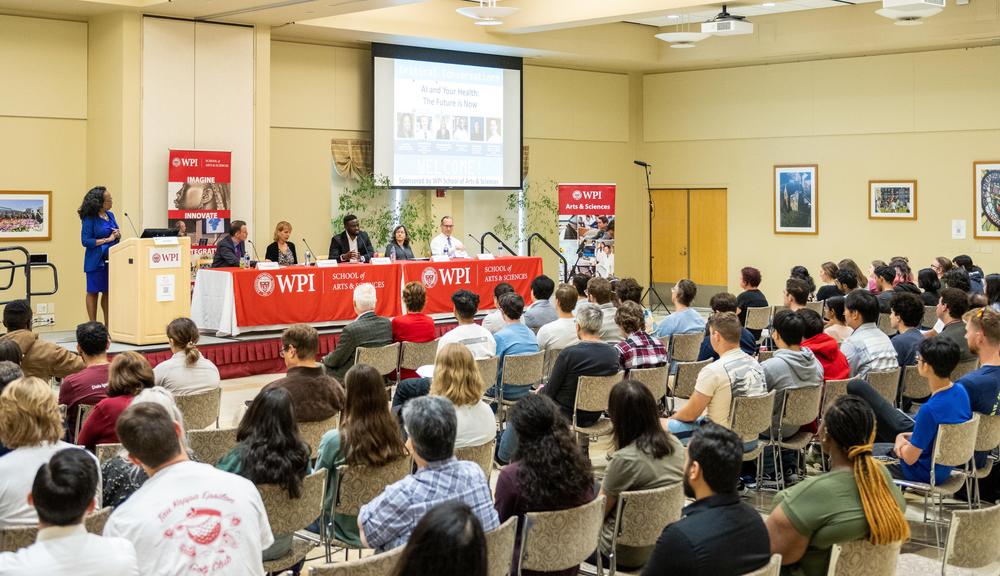Helping nurses spend more time at the bedside caring for patients and streamlining the process for veterans’ disability examinations are among the goals of a new five-year program launched by Worcester Polytechnic Institute (WPI) and the Veterans Affairs (VA) New England Healthcare System.
The program is part of the New England Health Care Engineering Partnership (NEHCEP), a consortium that includes WPI, MIT, and Northeastern University, which was created to apply engineering principles to improve the delivery of health care for veterans in New England. NEHCEP also seeks to expand educational opportunities for engineering students to focus on health care operations, and for health care professionals to apply engineering principles that have been effective in other large organizations. "We’re excited about this partnership and look forward to helping our partners in the VA as they strive to provide the best possible care for our veterans," said Sharon Johnson, PhD, associate professor of industrial engineering at WPI.
Dr. Michael F. Mayo-Smith, network director for VA New England Healthcare System (VISN 1) noted that this new program "is a national honor and a testimony to the outstanding clinical and educational capabilities of our staff and our world-class academic partners." Looking to the future, Dr. Mayo-Smith added, "We expect nothing less than to build a pervasive culture of improvement that will engage all of our staff from top to bottom; improving our work is our work."
After several months of analysis and planning, NEHCEP has formalized its relationship with WPI through a five-year, $1.5 million program to engage faculty and students in engineering projects with the VA. Initial projects that WPI will lead include improving bedside patient care and redesigning the processes that support medical exams associated with evaluating veterans’ disability claims. This work will take place at NEHCEP’s primary clinical site, the VA Boston Healthcare System, a tertiary care center with three integrated campuses.
WPI’s projects are coordinated by the university’s Center for eHealth Innovation and Process Transformation (CeHIPT), which integrates research in technology, engineering, management, and process-development to help health care organizations. Through the partnership, WPI faculty and students will work with VA staff to examine existing processes at Boston-area clinical units, and then develop work-flow or systems changes to allow nurses to spend more time at the bedside. "For example, the delivery of medication is a critical process," Johnson said. "If the right medication isn’t in the right place at the right time, a nurse has to track it down and that takes time away from patient care. So we’ll be looking at the whole medication delivery process, among others."
The WPI team, which also includes Isa Bar-On, PhD, professor of mechanical engineering, and Diane Strong, PhD, professor of management, will analyze and make recommendations to improve the VA’s system for medical exams related to veterans’ compensation and pension exams. "The VA wants to improve the current system, since they are expecting a spike in demand for disability claims as veterans return home from Iraq and Afghanistan," Bar-On said. "We’ll be working on methods for better forecasting the demand, and to better match capacity with demand, so the necessary medical exams are handled more effectively and rapidly."
The WPI program is the first of several improvement projects that NEHCEP plans to launch in 2010, bringing additional engineering expertise from Northeastern, MIT and WPI to bear on the goal of improving care for veterans across New England.


